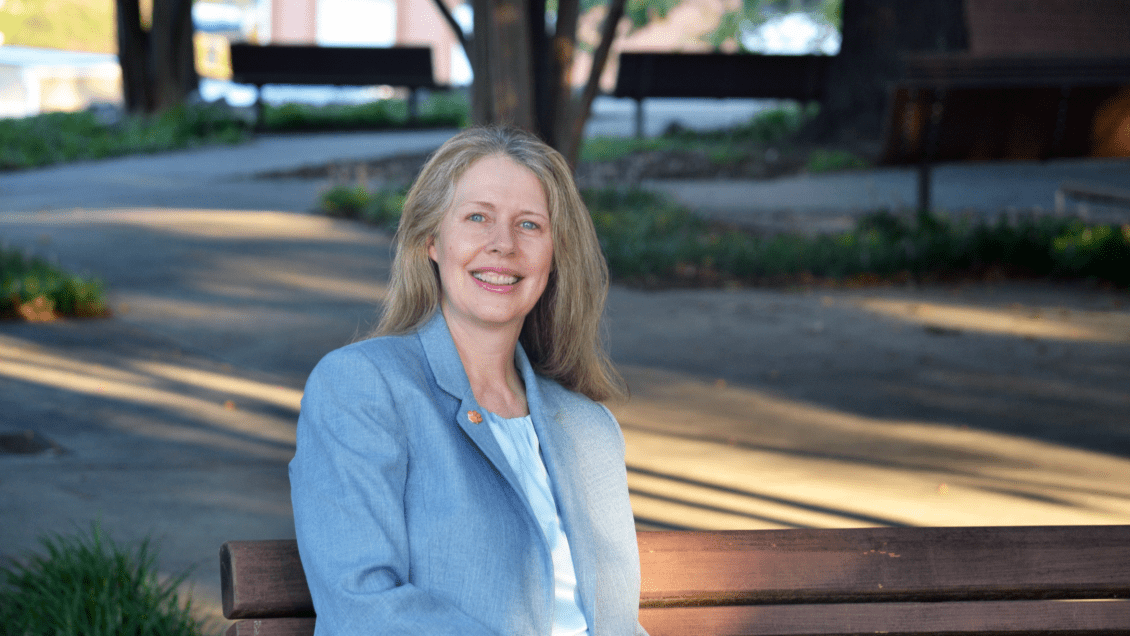Janice Withycombe is among the American Academy of Nursing’s new class of fellows, alongside 225 distinguished nurse leaders from 17 countries. She is one of three nurses in South Carolina selected for the honor.
Through the program, fellows engage with other health leaders to transform America’s health system by:
- Enhancing the quality of health and nursing.
- Promoting healthy aging and human development across the life continuum.
- Reducing health disparities and inequalities.
- Shaping healthy behaviors and environments.
- Integrating mental and physical health.
- Strengthening the nursing and health delivery system, nationally and internationally.
Academy President Eileen Sullivan-Marx, Ph.D., RN, FAAN, said the Academy aims to improve health and achieve health equity through nursing leadership, innovation and science.
“The Academy’s fellows embody our values of equity, diversity, inclusivity, inquiry, integrity and courage, which enable us to achieve new heights that advance health policy across the globe,” Sullivan-Marx said. “Congratulations to this dynamic cohort of leaders who bring diverse experience and expertise to the fellowship.”
An Academy fellowship appointment is a significant milestone in a nurse leader’s career that honors their accomplishments. Withycombe, an associate professor in the School of Nursing, said she is most looking forward to being able to help move the profession forward through her contributions to nursing science.
“The Academy is one of the major organizations for nursing that dictates the discipline’s path forward,” she said. “Academy fellows are committed to enacting changes that influence health care on local, national and international scales. It’s a great honor to join the Academy and have an opportunity to contribute to conversations which are at the heart of nursing.”
Clemson University School of Nursing Director Kathleen Valentine said that Withycombe’s induction as a Fellow to the Academy is the highest honor an individual nurse scholar can earn in a career.
“Dr. Withycombe has contributed groundbreaking advancements in pediatric oncology, and we look forward to her continued contributions to the discipline of nursing in the work of the Academy,” Valentine said.
This honor recognizes their work, and in one of her most recent research projects, Withycombe has worked with a team of national researchers to create a self-report system for pediatric patients to share their symptoms.
“Symptoms are often subjective in nature, and during treatment for childhood cancer, we believe that the child is the best person to tell us how they are feeling,” she said. “We’ve developed a library of questions using child-friendly language, which assesses common symptoms during cancer.”
The symptom questions have been validated and are now available on the National Institute of Health’s website for use by other researchers.
Withycombe is also the leader of a nursing research subcommittee for an international pediatric oncology organization, the Children’s Oncology Group, which implements clinical treatment trials for children.
“Within the Children’s Oncology Group, I serve as chair of the nursing research subcommittee, which has a mission to develop new studies related to decreasing cancer-related distress for children and their families,” she said. “This work includes researching educational needs of children and their families related to cancer treatment.”
The group has developed educational materials for children as they go through treatment. The materials have been downloaded hundreds of times in multiple languages.
At Clemson, Withycombe said she plans to continue building a research program related to symptom science. This program includes physical activity studies in children going through cancer treatment to combat symptoms such as fatigue and promote long-term positive health outcomes.
She said childhood cancer survivors tend to develop chronic illnesses like diabetes, heart disease, and obesity. Physical activity can help mitigate these risks. An expert panel on health behavior exists within the Academy, and she looks forward to joining their efforts to promote healthy lifestyle initiatives.
“My goal is to let children be children and encourage play and physical activity as they go through therapy,” Withycombe said. “I want to help them develop positive habits related to physical activity, so they are ingrained within their daily life as they grow older.”
The College of Behavioral, Social and Health Sciences (CBSHS) Dean Leslie Hossfeld said that Withycombe’s work helps move the college forward in its mission to build healthy people and communities.
“I am so pleased for Dr. Withycombe as this reflects favorably on her work as a scholar and on the work she does for the School of Nursing, CBSHS, and Clemson University. This is truly a well-deserved honor.”
An induction ceremony will be held by the American Academy of Nursing on Oct. 9 at 5:30 p.m.
The School of Nursing is part of Clemson University’s College of Behavioral, Social and Health Sciences (CBSHS). Established in July 2016, CBSHS is a 21st-century, land-grant college that combines work in seven disciplines – Communication; Nursing; Parks, Recreation and Tourism Management; Political Science; Psychology; Public Health Sciences; Sociology, Anthropology and Criminal Justice – to further its mission of “building people and communities” in South Carolina and beyond.
The American Academy of Nursing serves the public by advancing health policy and practice through the generation, synthesis and dissemination of nursing knowledge. Academy fellows are inducted into the organization for their extraordinary contributions to improve health locally and globally. With more than 2,800 fellows, the Academy represents nursing’s most accomplished leaders in policy, research, administration, practice and academia.
Get in touch and we will connect you with the author or another expert.
Or email us at news@clemson.edu

